#bevs
Is Hyundai's Electric Kona the EV North America Has Been Waiting For?
Range anxiety remains the primary reason why most people don’t want to purchase an electric car. However, the overall recipe for today’s battery electric vehicles feels counter to what consumers are demanding. In the United States, all the top-selling electrics are whatever sedan or hatchback has a superior range. But, excluding the pricy Model X, there isn’t a single SUV or crossover among them (the Soul EV doesn’t count). Odd, considering that’s the body style most people are clamoring for right now.
That’s what makes Hyundai’s decision not to send the all-electric Kona immediately to North America a bit perplexing. We understand the brand probably feels some trepidation over sending another green car to the U.S. After all, the Ioniq could have performed better in its rookie year — despite being a totally serviceable alternative to Toyota’s Prius (as a hybrid) or Nissan’s Leaf (as a battery electric).
But the Kona EV has the potential to take the niche EV market by storm. Not only would it be the only electrified crossover that doesn’t require a lofty financial investment, it would also have an enviable range. More than enough to best the Chevrolet Bolt on a lengthy road trip, in fact.
BMW Group Signs Deal to Build Electric Minis in China
BMW Group has signed with Great Wall Motors to produce Mini-branded vehicles in China. This is the German automotive group’s second joint venture in the region and will not affect its current alliance with Brilliance Auto — which builds BMW models specifically equipped to appeal to the Chinese market.
The same will be true for the Mini deal with Great Wall, as the entirety of the production line will be electric vehicles. While the main reason for this is to ensure BMW hits its government-imposed quota for EVs, Great Wall said the venture would help it meet the needs of Chinese consumers and tap into the new energy vehicle market both home and abroad.
Mini has said a production version of the Mini Electric Concept won’t happen until November of 2019, but there’s been buzz that the automaker may seek widespread electrification after that. Interestingly, Chinese Minis will use a new platform developed by the joint venture, rather than rely on whatever architecture the Western-built EV adheres to. That’s two separate plug-in product lines. Will EV exclusivity be the future of the brand?
Please Stop: Toyota Design Head Envisions Future Without Mass-market Automobiles
It’s starting to feel like people in the automotive industry simply cannot help but blurt out ludicrous claims involving a hypothetical future nobody on the outside seems to care about. These people, in charge of the the automobile’s ultimate form, appear to be so singularly obsessed with the vague concept of “mobility” that they can’t imagine any other alternative.
This week’s example came from Simon Humphries, the new general manager of Toyota’s advanced R&D, who mused about a tomorrow that didn’t need mass-market models. However, we’re not satisfied to condemn the design chief. Media outlets deserve a share of the blame for promoting these concepts without much logical backing.
Porsche's Unbridled Excitement for EVs Continues to Swell
Porsche, the iconic performance nameplate diving ever deeper into luxury and electrification, once again finds itself incapable of withholding its excitement toward both. Company board member Detlev von Platen claims Porsche is seriously considering increasing the production capacity of its upcoming Mission E model beyond 20,000 annual units and electrifying the Macan crossover.
According to von Platen, initial customer inquiries into the Mission E has been so strong that the brand wants to make sure it can meet demand. Buying habits also give the automaker hope that its customer base is prepared to make the eventual switch from internal combustion to electrically-assisted engines.
“In Europe, around 60 percent of Panamera vehicles were delivered with a hybrid drivetrain,” von Platen said.
Aston Martin Hunting for Sales and an EV Partner in China
Aston Martin is seeking a joint venture in China to ensure a future for itself in the world’s largest electric vehicle market, according to CEO Andy Palmer. The brand has previously stated it wants BEVs to account for roughly 25 percent of its global sales by 2030, with the remaining fleet adopting hybridized powertrains. However, Palmer said those early EVs sold in China may not wear the Aston name.
The automaker has also decided to build the RapidE electric sports sedan, limiting its production to 155 units sometime in 2019. While the model currently exists only as a test mule based on the gasoline-powered Rapide, Palmer claims the finished product will provide Tesla shoppers with what they should have been offered in the first place.
LAPD's Multi-million Dollar Electric Fleet Allegedly Goes Unused and Unloved
We know the State of California loves electric cars, but the Los Angeles Police Department may have mixed emotions. Back in June of 2016, the LAPD awarded BMW with a contract to provide 100 battery-powered i3 hatchbacks as part of a plan to enhance its public image. At the time, Los Angeles Mayor Eric Garcetti told the press, “We should be thinking green in everything we do,” adding that the electric BMWs would “also save money and resources.”
Fast forward to 2018 and the contract is beginning to look like a good way to waste millions of dollars. The LAPD agreed to lease the vehicles, effectively doubling its electrified fleet, for three years. The logic was that the gas savings would offset the $1.4 million it would cost the police force to apprehend them from BMW. While that sounds wonderful, there is a problem — the LAPD isn’t driving them.
Following the Trend: Ferrari Developing Electric Supercar to Compliment Its SUV
Despite referring to the mere notion of an electric Ferrari as “obscene” in 2016, chief executive officer Sergio Marchionne is now saying the brand is obligated to build one. The situation is familiar to what happened with the brand’s upcoming sport utility vehicle — Sergio claimed it would never happen and, roughly a year later, flipped the script.
The SUV is supposed to reach the public by late 2019 or early 2020. However the battery-electric Ferrari won’t come until the brand has established a few hybridized powertrains first. Marchionne claimed that “going from there to an electric is easy,” prefacing the plan with “We do it because we have to do it.”
Can an Electric Car Really Save You Money? It Depends on Where You Live
The automotive industry’s gradual shift toward electric vehicles is primarily influenced by global fuel economy mandates. A happy side effect is that consumers benefit from having access to vehicles offering better overall efficiency. This translates into lower running costs and some real savings — once EVs come down in price.
However, there are instances where it might still be cheaper to run a plain Jane internal combustion unit. A new study from the University of Michigan’s Sustainable Worldwide Transportation group explores exactly how cost-effective electric vehicles are and how fuel efficient an internal combustion model would need to be to become the cheaper alternative. The answer, as it turns out, has a lot to do with where you live.
Everyone Leases Electric Vehicles Because the Next Crop Will Always Be Better
The automotive industry frames electric vehicles as the future of motoring, but despite a large number of plug-in options already available, the entire idea of owning an electric car is still rather futuristic. Leasing one, however, is far more contemporary.
Growing in popularity, automotive leasing hit a record high in 2016, accounting for 31 percent of all new vehicle sales in the United States. But that’s nothing when you isolate the number of electric cars. U.S. drivers now lease nearly 80 percent of battery-electric vehicles and 55 percent of all plug-in hybrids. Accounting for this trend is a consumer perception that EVs will only get better over time — which isn’t all that different from saying the current fleet isn’t all that impressive.
Here's What Brown Can Do for Tesla Motors
The United Parcel Service said Tuesday it will purchase 125 all-electric semi trucks from Tesla, surpassing PepsiCo’s order to make it the largest known order for the vehicle thus far. While the purchase isn’t tantamount to UPS making a complete shift to an electric fleet, the company has previously stated it wants to convert up to 1,500 delivery trucks in New York to battery electric units and has been researching non-traditional powertrains for some time.
With so many of its trips taking place between distribution hubs, a medium-range EV truck boasting a high capacity could be a good fit for UPS. At the very least, Tesla seems to think so — the delivery service provided the automaker with extensive data on how its trucks function on real-world routes in order to evaluate how the hulking BEVs might perform in its fleet. Of course, the cooperative experience also helps both companies promote themselves as leaders in the green revolution.
Is This Really a Big Deal? BMW Praises Itself for Selling 100,000 Electrified Cars
In a flagrant exercise of self-congratulation, BMW announced it met its sales goal of 100,000 electrified vehicles in 2017 “as promised.” Saying that this “underlines the company’s leadership role when it comes to electro-mobility,” BMW installed a battery-themed light installation on the side of its world headquarters in Munich, Germany, that announces “the future is electric.”
While this may be true, mainstream news outlets have muddled the brand’s message by framing the EV aspect all wrong — which is probably exactly what the automaker hoped for. We’re not going to slander the company’s achievement outright; the volume does represent a nearly 60-percent increase over last year. But these aren’t just battery-electric cars, they’re hybrids, mild-hybrids, and BEVs.
Hedge Fund Manager Convinced Tesla Shares Will Collapse
American investment manager and short-seller extraordinaire Jim Chanos claims Tesla is “headed for a brick wall.” Having deemed the automaker as structurally unprofitable, Chanos said, “Three years ago, this company was supposed to be making money [today]. And now, it’s supposed to be making money by 2020. I’m guessing by 2019, we’ll hear about 2025.”
However, while Tesla has taken on massive amounts of debt to ensure its evolution as company, investors haven’t seemed to mind. Its stock price has climbed from $33 a share in 2013 to almost $380 in September of 2017. As a short-seller, Chanos says he’s lost money on the company in the past since the stock price never seems to go down, and that’s what he finds the most alarming.
“Nobody is buying Tesla stock based upon the current business,” he said. “It’s all based on the future and the hope for half-a-million to a million Model 3s per year.”
Transit Authorities Tepid On Electric Buses Despite Promising Tech
Despite a surplus of cities seeking ways to reduce air pollution, electric buses haven’t taken off in the United States as expected. While analysts still anticipate a sudden surge in electrification in the years to come, present-day transit authorities have continued opting for dirty diesels as the primary method of moving urbanites around town.
The primary hurdles are infrastructure and cost. Whereas subway tunnels come with equipped with a third-rail ready to deliver the voltage necessary for mass transit, above-ground applications abandoned wire networks the second the trolley fell out of fashion. Electric buses don’t need either, but they do require reliable charging infrastructure and a larger-than-average initial investment.
Automakers Formally Take Aim at California's Zero-emission Vehicle Mandate
Compared to the rest of the United States, California is on the bleeding edge of government-appointed environmentalism. When the Trump administration suggested reexamining Obama-era fuel economy and emissions standards, The Golden State was the first to complain, saying it would not be adjusting its goals just because the rest of the country may. It also has pretty serious mandate on zero-emission vehicles — one that forces 15 percent of all new vehicles sold in the state to use zero-emission powertrains by 2025.
While California isn’t alone — nine other states have followed its lead since Trump took office — it is the keystone star on America’s flag pushing to maintain expand fuel regulations. Automakers have noticed and, despite previously having agreed with President Obama’s emission standards several years back, they’re launching a counter-offensive.
Arguing before a U.S. House panel, the Association of Global Automakers complained that California’s ZEV mandate threatens a single national standard for fuel economy.
Anheuser-Busch Reserves 40 Electric Semi Trucks From Tesla Motors
When you’re selling the self-professed “King of Beers,” you’re going to want to transport them in a style befitting of royalty. Either that, or you’re interested in keeping your shipping costs to a minimum and have the capital necessary to invest in new technologies like an electric semi.
Anheuser-Busch, maker of Budweiser and over a dozen other beer brands, has decided to purchase 40 of Tesla’s battery-electric trucks. The company said it made the move in hopes of reducing fuel costs and cutting vehicle emissions. We’d also gamble that the adult beverage purveyor is interested in the vehicle’s claimed autonomous driving capabilities.



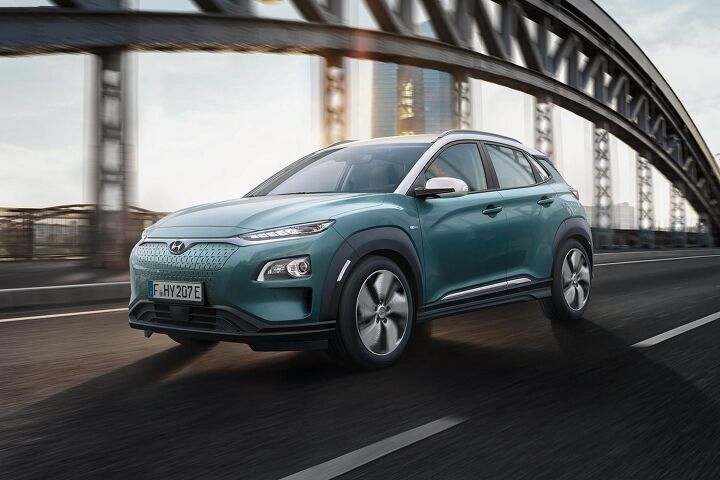


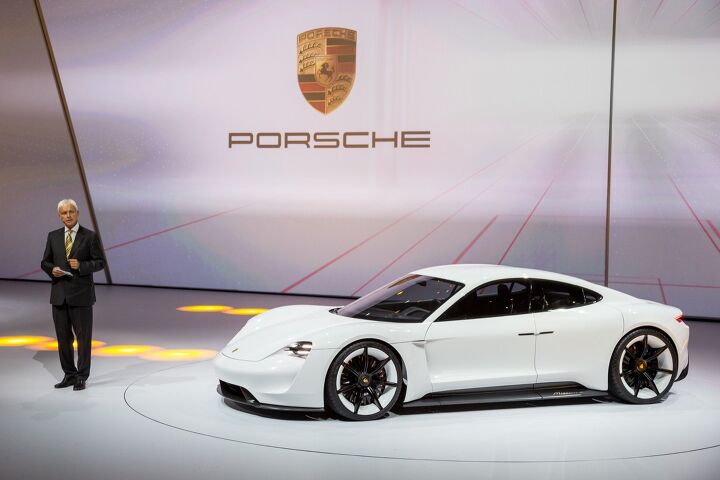

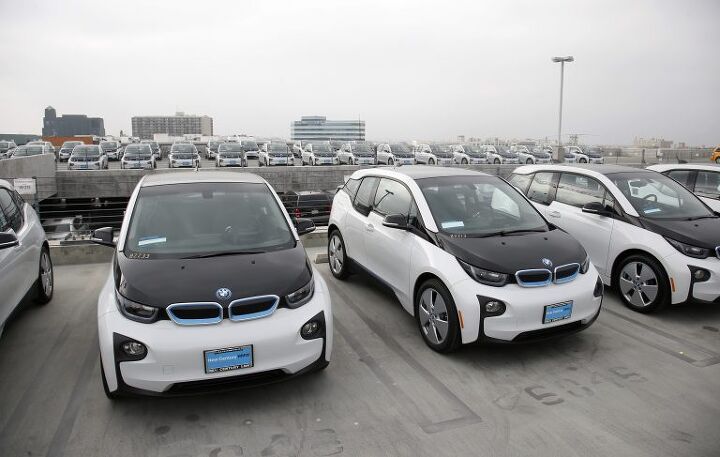
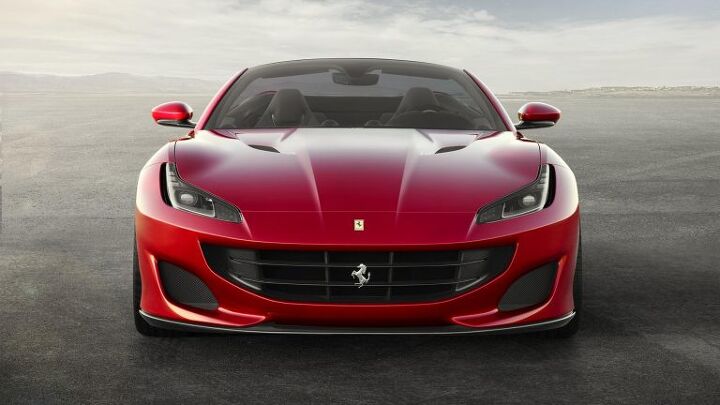
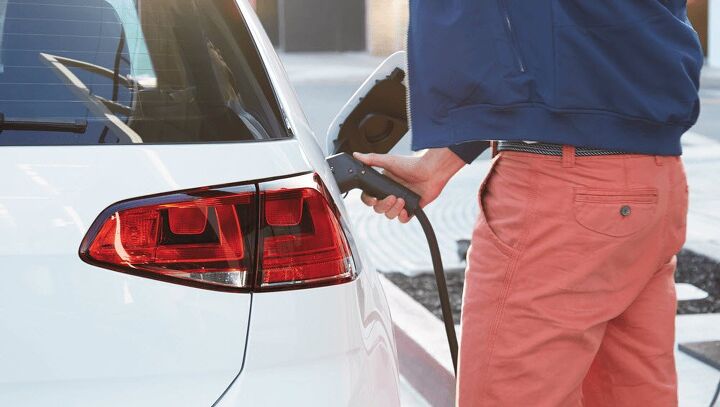
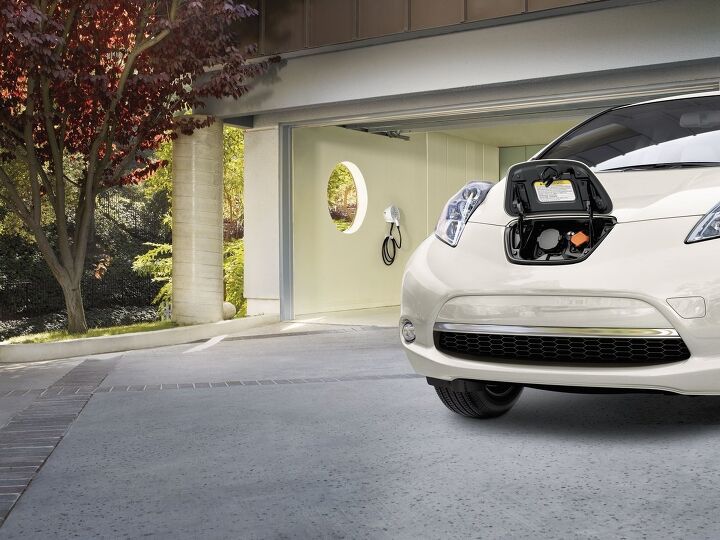

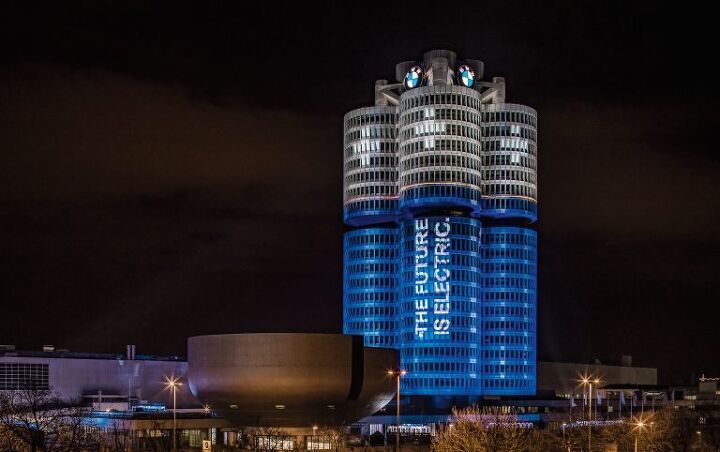















Recent Comments